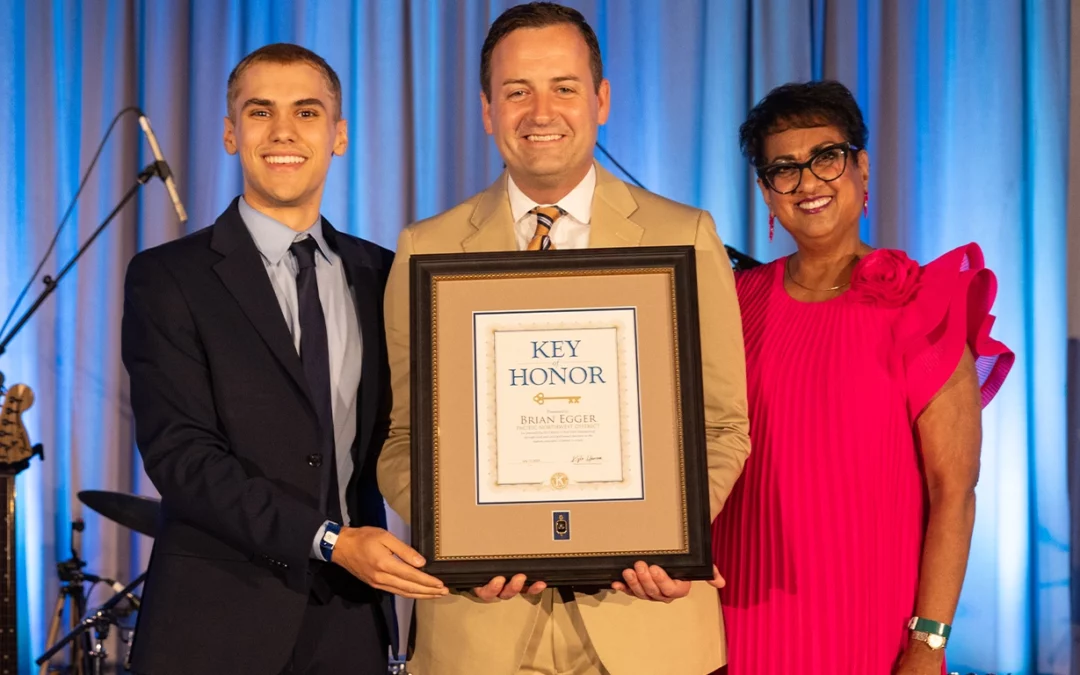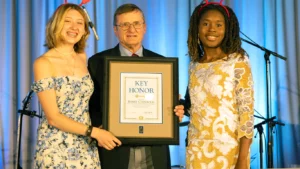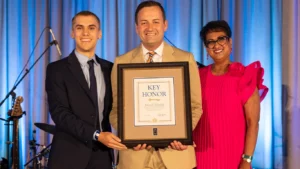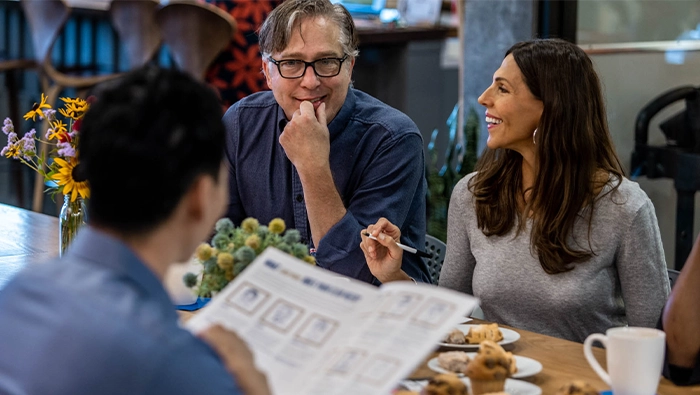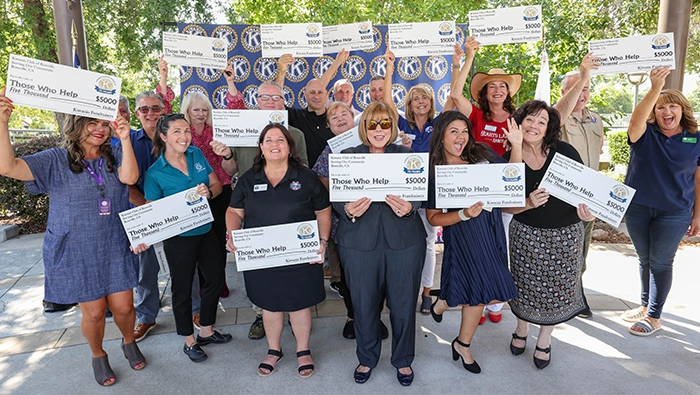
A $75,000 gift to celebrate 75 years of service
In California, a Kiwanis club marked its milestone with a major investment in the community. Here’s how members did it.
By Julie Saetre
The Kiwanis Club of Roseville, California, U.S., commemorated its 75th anniversary this year, and club members wanted to celebrate in a big way — by giving back to the community. Their solution: giving a US$5,000 check to each of 15 community groups, for a total impact of $75,000.
The common thread among the groups, says club member Roy Stearns, is consistent service to kids and the community.
“Each of the organizations selected has ongoing contact with a populace they have been serving for years who are struggling with some hardship, be it food insecurity, medical conditions, schooling, clothing, homelessness, foster care, child abuse or other problems,” Stearns says. “The Kiwanis Club of Roseville feels strongly that these groups know their constituencies best and how to utilize added funding where it makes a difference.”
The Roseville Kiwanis Club is relatively small, with 45 members in a community of 150,000. So how did they raise $75,000?
“We have a cadre of very dedicated Kiwanians,” says Mike March, the club’s president-elect, “and we’ve developed a stable of ongoing fundraisers that keep the funding rolling in and the donations to children’s organizations rolling where needed. Our members are very proud of that.”
Inspiration from Roseville
If your club would like to make a significant community donation to mark a future milestone — or for any reason — these Roseville Kiwanis Club fundraisers could inspire some new approaches:
- Sell sweet treats. Each year during the holiday season, Roseville members set up shop in a rented storefront and sell See’s Candies. In 2024, the club netted over $13,000 as a result.
- Get competitive. The annual June golf tournament brought in over $2,000.
- Be flexible. The club used to host a popular crab feed, but prices for the crustaceans have soared. So members pivoted to a catered taco festival, which raised an additional $2,000.
- Throw a party. In the nearby town of Rocklin, the Roseville club sponsors the Rocklin Community Festival each May. Fans flock in for carnival rides, a craft show and music. For thirsty adult attendees, the club partners with a local brewery for sales in a beer garden. “This four-day festival brought out our Kiwanians to the tune of more than 800 [volunteer] hours,” Stearns says, “and it netted more than $40,000.”
- Spark a celebration. Members sell fireworks for the U.S. holiday of Independence Day on July 4. In 2024, they brought in over $30,000.
In addition, Stearns says, the club keeps a solid reserve of funds for families in need — in case of another unforeseen event like the COVID-19 pandemic.
Ultimately, the key component to financial stability is member commitment.
“Let me be clear,” Stearns says. “All of these fundraisers require that our Kiwanians step up to the plate and take their turn at whatever they are capable of doing. And they do that because they strongly believe in our mission.”

